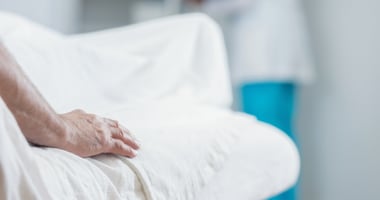Psychiatrists Offer Insights, Guidance Regarding SMI Patients During COVID-19 Pandemic
 |
“Our aim is to heighten awareness of the interfaces between COVID-19 and SMI to facilitate informed treatment of people with SMI during this pandemic, with each hospital and outpatient setting knowingly modifying what it does to meet local needs,” Geller and Abi Zeid Daou wrote.
Working with patients with SMI through the COVID-19 pandemic requires that psychiatrists and mental health professionals pay attention to the many ways that common SMI symptoms—such as hallucinations, cognitive deficits, and anxiety—might impact the ability of patients to successfully engage in treatment, grasp the severity of the pandemic, and/or even recognize COVID-19 symptoms, the authors wrote. For instance, auditory hallucinations can interfere with a patient’s ability to communicate with a doctor over the phone, and paranoia can escalate when required to communicate through electronic devices. Similarly, cognitive deficits can make it challenging for a patient to follow new handwashing and social distancing practices.
Geller and Abi Zeid Daou described the challenges that staff at psychiatric hospitals and residential settings for individuals with SMI now face, as they implement procedures to prevent the possible spread of COVID-19. Such procedures include restricting hospitalized patients to their own unit, which the authors noted in some cases “were never designed to have patients stay in them during the day”; and in residential settings, reducing the amount of time residents spend in common areas, staggering mealtimes, and excluding visitors.
“For many persons with mental illness, being alone is a terrible burden, far beyond that experienced by many others. … Loneliness precipitates psychiatric symptoms in those without SMI, let alone those with these disorders,” they noted, adding that the message of social distancing can be hard for some patients with SMI to grasp. “A clubhouse member living at home said, ‘For years they told me not to isolate myself and to be out with other people. Now they’re telling me to stay home and isolate myself. I’m confused.’”
Nonetheless, efforts to prevent the spread of COVID-19 among patients with SMI are critical, as these patients are likely at greater risk than the general public, due to their worse physical health and potential side effects of medications commonly used to treat their symptoms, the authors wrote.
“Like so many others in health care, we now find ourselves in rough waters with one broken oar in a craft that requires two paddles. In this health care crisis, psychiatry, like every other medical discipline, finds itself venturing forth in practice patterns with which we have no experience,” they concluded. “We might do well to heed the words of Mahatma Gandhi: ‘You may never know what results come of your actions, but if you do nothing, there will be no results.’”
To read the full article, see the Psychiatric News article “Patients With SMI in the Age of COVID-19: What Psychiatrists Need to Know.”
APA’s COVID-19 Resource Center Keeps You Updated
APA’s COVID-19 Resource Center brings together a number of useful resources from APA and other authoritative sources to help you deal with the COVID-19.





